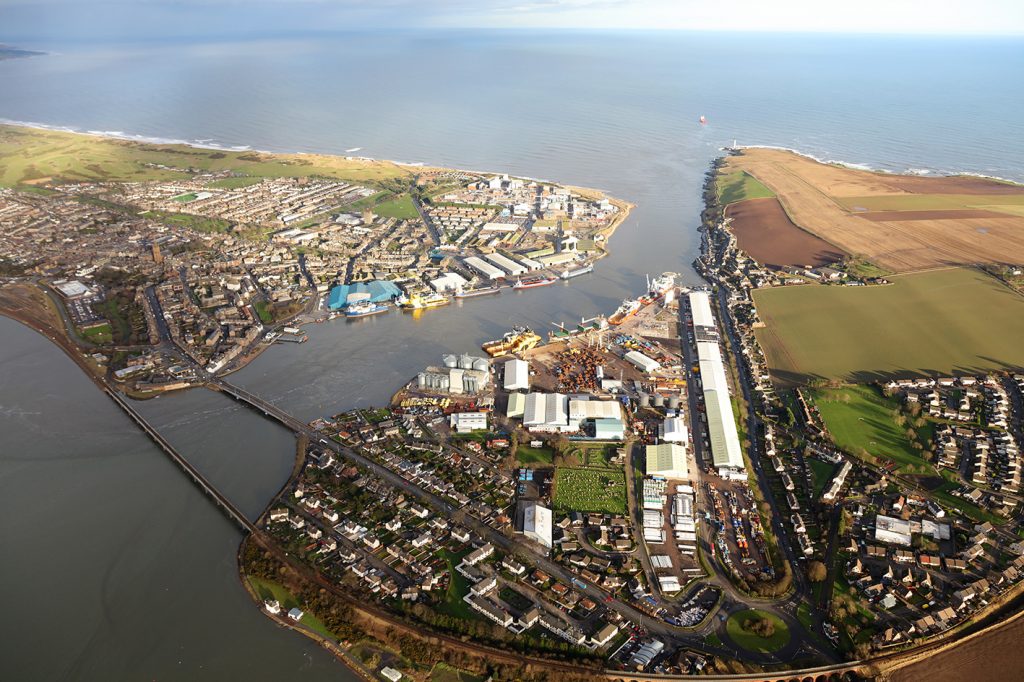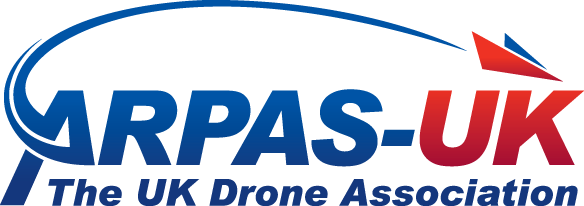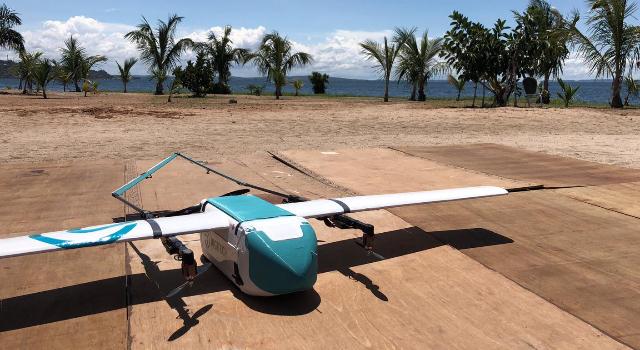A UK-first proof of concept trial for the delivery of medical supplies – including Covid-19 test kits – to vessels at sea is to be held at Montrose Port this week.
Project MediDrone, which uses remotely operated unmanned aerial vehicles (UAVs), or drones, was funded by a UK Government innovation grant and will involve the aircraft departing the quayside at Montrose and landing on a vessel offshore.
If successful, the trial could open up the opportunity for Covid-19 tests and other medical supplies to be delivered to and from vessels without them needing to dock or be boarded by harbour pilots, further reducing any risk of infection being brought back to shore and into the community.
The trials are being coordinated by London-based technology firm Neuron Innovations Ltd in partnership with ‘drone-in-a-box’ provider Herotech8 and specialist insurance and risk management company, Flock.

Weather permitting, the flight will take place at midday on Thursday 29th April 2021.
Niall Greenwood, CEO at Neuron, said that Montrose was chosen for its location, facilities, and the management team’s forward-thinking approach: ‘We are delighted to be leading the Montrose Drone trials, to enable the delivery of medical supplies from shore to ship,” he said.
“Drones offer a much safer, faster, and more cost-effective method of delivery compared with more traditional approaches. By connecting the drone to Neuron’s surveillance network we have made a significant step to enabling these kinds of applications on a routine basis. The data from our networks provide the drone pilot with the ability to remotely observe nearby aircraft so that they can keep the drone safely separated from them”
Herotech8’s ‘drone-in-a-box’ solution comprises an automated recharging station and communication relay which allows the drone to be operated remotely and on-demand by a pilot situated at their offices at Cranfield University. The drone automatically takes off and lands and follows pre-programmed waypoints during its flight. The pilot is there just to monitor the drone during the flight to ensure the safety of the public and other airspace users.
Hamish Murray, Projects Team Leader at Montrose Port Authority, said: “Securing this trial is a unique opportunity for Montrose and adds to the growing list of innovative projects going on within the port and the broader local community. We already work closely with the team behind the proposed Montrose Drone Port and as well as using our quayside for the trials, our pilot boat and other port personnel will also be heavily involved. With our growing reputation within the offshore wind industry, as well as traditional oil and gas and general cargo, we can see drones potentially becoming a common sight in the skies above the port and at sea, and I’m glad that we are able to play such a pivotal role in helping shape the future of this exciting technology.”
Sam Golden at Flock added: “This trial paves the way for widespread use of drones for ship to shore delivery. We are showing how drones can improve safety, cut costs and increase efficiency in ports globally. I’m grateful to the UK government for supporting this trial and to Neuron for bringing together best in class companies to deliver on it. Great things can happen when companies are given the space to collaborate.”
The trial was made possible by a grant from UK Research and Innovation’s (UKRI’s) Future Flight Challenge. The consortium’s aim is to demonstrate how the safety and efficiency of ports can be improved using drones to reduce the number of trips to vessels by pilot boats which can take hours to complete and are made dangerous by the crew having to climb a rope ladder from one vessel to another.
26 April 2021







 Speaking about the official launch of the service on April 24, Ghana’s President Nana Addo Dankwa Akufo-Addo said it was part of a drive to ensure universal access to lifesaving medicine in Ghana.
Speaking about the official launch of the service on April 24, Ghana’s President Nana Addo Dankwa Akufo-Addo said it was part of a drive to ensure universal access to lifesaving medicine in Ghana.
